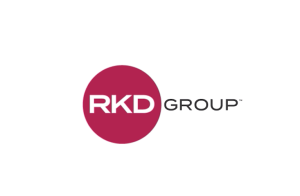Leadership Matters. The damage being done to Harvard University by an insular corporation board comprised of executives who should know better won’t be restored quickly. The tax-exempt school, which has been foundational to government and business worldwide, just might be marred beyond complete repair.
Harvard University President Claudine Gay’s disastrous testimony in Congress before the House Committee on Education and the Workforce is just one reason for the damage. Her response “depending on the context” to a question on genocide and free speech should have been enough to show her the door. Now there are multiple instances of what’s being termed “inadequate citation” (i.e. alleged plagiarism) in her dissertation and other writings which alone should result in her resignation or termination.
Gay’s resignation or termination is not enough. If board members can’t make a human resources decision how can they be trusted with a $50.9 billion endowment?
While you can’t have a principled mass resignation of a board such as Harvard Corporation’s, there needs to be a swift declaration of a process to replace all members within the next 24 months. The changes need to start with prominent leaders of the nonprofit sector who are on Harvard Corporation’s board and should know better regarding nonprofit operation and transparency.
Harvard’s operating budget for 2023 was $6.1 billion, with an operating surplus of $186 million. The university reported $2.2 billion in distributions from its endowment during fiscal year 2023. In fiscal year 2022, Harvard received current use gifts from alumni, foundations, and others totaling $505 million. Current use includes distributions from restricted donations.
The endowment exceeds the gross domestic product of the nations of Jordan, Tunisia, Libya, Bahrain and Iceland to list a few. There’s no telling how long the surplus will last with the number of early enrollments, arguably the best applicants, reportedly plummeting and supporters such as billionaire Len Blavatnik pausing donations.
All but two of the 12 board members earned a degree from the university, with one member having received an honorary degree. Board member Shirley M. Tilghman, a biologist and scholar with Ivy League credentials from Princeton University, is the lone academic immigrant. It can be argued that she should ascend to board president and lead the reformation. An educational institution where leaders talk diversity should have a board that isn’t made up of degree-holders of the university (academic or honorary) at an 11 to 1 ratio.
The individual positions of the board members on these issues is not publicly known. But Harvard is too much a part of American and world leadership to be allowed to be damaged by a board scurrying to preserve its cloister. Immediate action is required. This is not an academic exercise.
Harvard previously could ignore criticism of its academic policies because of its bankroll and prominent alumni who continued to give. This is not an argument for or against academic freedom. It has everything to do with running a flagship institution, one that will be feeding the brightest and the best into industry and nonprofits alike.








